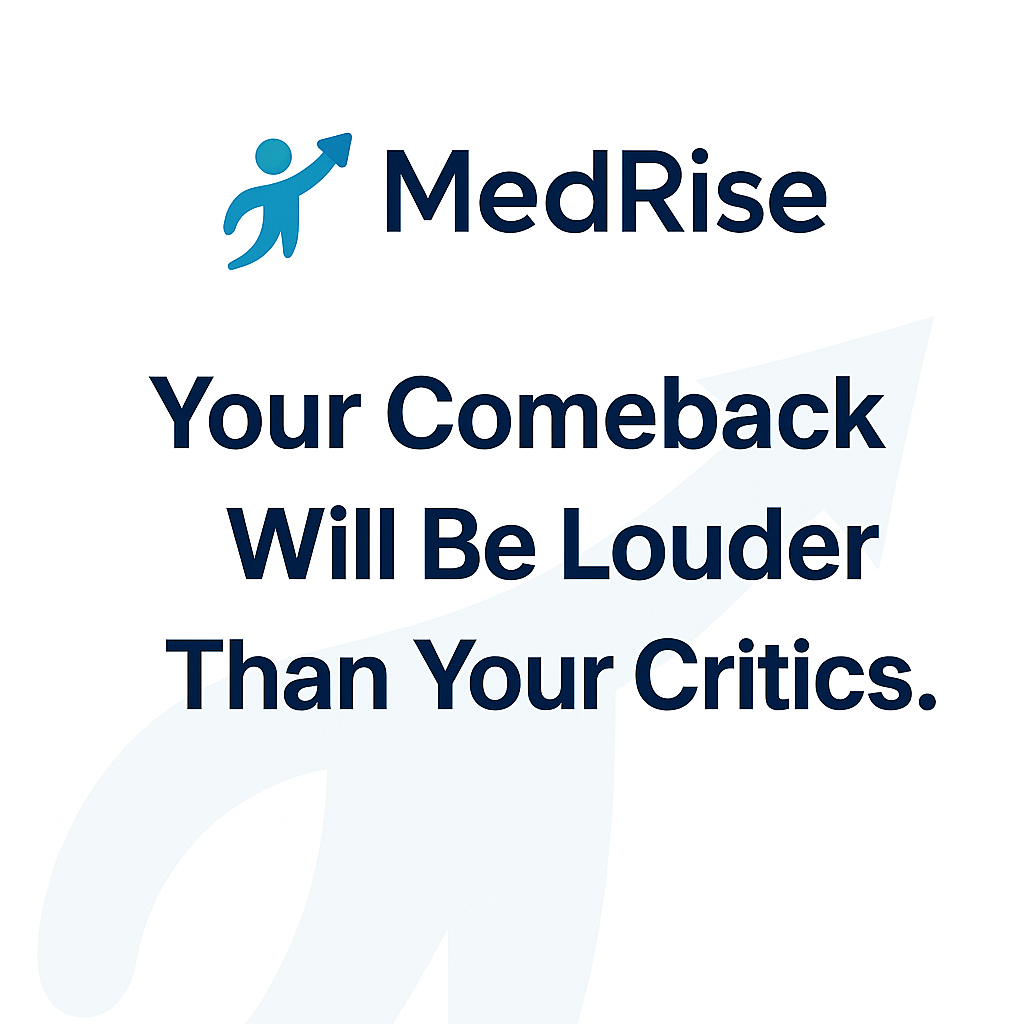Newly Diagnosed With ADHD in Med School? Here's How to Rise Stronger
You are not a failure. You were fighting an invisible battle without armor — until now.
If you're reading this, you’ve probably heard words like:
"You need to be more organized."
"You're smart but you don't apply yourself."
"Maybe medicine just isn't for you."
And after struggling through UWorld blocks, missed deadlines, forgotten Anki decks, and terrifying NBME scores —
you finally have an answer: ADHD.
The diagnosis feels like a gut punch.
Maybe you're angry, ashamed, relieved, heartbroken.
Maybe you're wondering,
"Was I ever actually good enough for this?"
Let’s get one thing straight:
You were always good enough. You just never had the tools.
What No One Tells You About ADHD Diagnoses in Med School
Here's the brutal truth:
Most medical students with ADHD aren't diagnosed until after they fail, after they fall apart, after the system spits them out.
Not because they’re lazy.
Not because they’re "bad students."
Because ADHD in high-functioning students often hides under:
Coping by last-minute cramming
Relying on hyperfocus surges
Masking forgetfulness and overwhelm by working twice as hard
But in medical school — the volume, pace, and executive demands explode.
No more skating by on brute force.
And without diagnosis + real systems, ADHD can wreck even the most brilliant future doctor.
Getting diagnosed now isn't the end.
It's the beginning of your comeback story.
How to Rebuild After an ADHD Diagnosis in Med School
You’re not starting over empty-handed.
You’re starting with the experience, grit, and fire you earned the hard way.
Now, it’s time to add the strategies you should have had all along:
1. Seek Accommodations ASAP
You are legally entitled to reasonable accommodations (extended test time, private rooms, breaks) for Step exams, shelf exams, and clinical assessments.
Apply through your school’s disability services office immediately.
If you're close to Step 1/2, start the NBME accommodations request process now (it can take months).
👉 Pro Tip: MedRise Motivation can help you script accommodation requests strategically.
2. Shift Your Identity: You Are a Problem-Solver, Not a Problem
You didn’t fail because you’re weak.
You struggled because you had untreated executive dysfunction during the hardest academic training in the world.
From now on, you are a systems-builder —
someone who doesn’t just work harder, but builds smarter.
3. Create an ADHD-Specific Study Plan
Generic advice won’t cut it.
You need a plan that includes:
Micro-goals and external deadlines (because internal sense of time = unreliable)
Active recall over passive review (because ADHD brains crave engagement — think UWorld, not passive rereading)
Scheduled review windows (because ADHD working memory leaks fast)
You deserve a study system that works with your brain.
4. Find ADHD Allies
Therapists. Academic coaches. Trusted mentors who “get it.”
People who see your brain not as a deficit — but as a different operating system.
You’re not weak for needing help.
You’re a genius for building your crew.
You Are Not Broken. You Are Built for a Different Kind of Medicine.
The truth?
Most of the doctors who change medicine —
who connect with patients others miss, who innovate when others accept the status quo —
aren't the ones who floated through without struggle.
They're the ones who fought their way back from hell.
You’re one of them.
And your patients will need exactly your kind of brain —
the one that knows how to spot the chaos, create calm, and keep fighting when others give up.
Ready to Build Your Comeback Story?
At MedRise Motivation, we specialize in elite academic recovery and ADHD strategy coaching for medical students.
✅ If you're ready to turn your diagnosis into your competitive advantage, apply for a free strategy session here.
(We only accept a few students monthly to give customized support.)
Your comeback will be louder than your critics.
And you’re just getting started.
MedRise Disclaimer
This post is for educational and motivational purposes only and is not a substitute for professional medical advice, diagnosis, or treatment. Always seek the advice of your physician, mental health provider, or other qualified health provider with any questions you may have regarding ADHD or any other medical condition.

